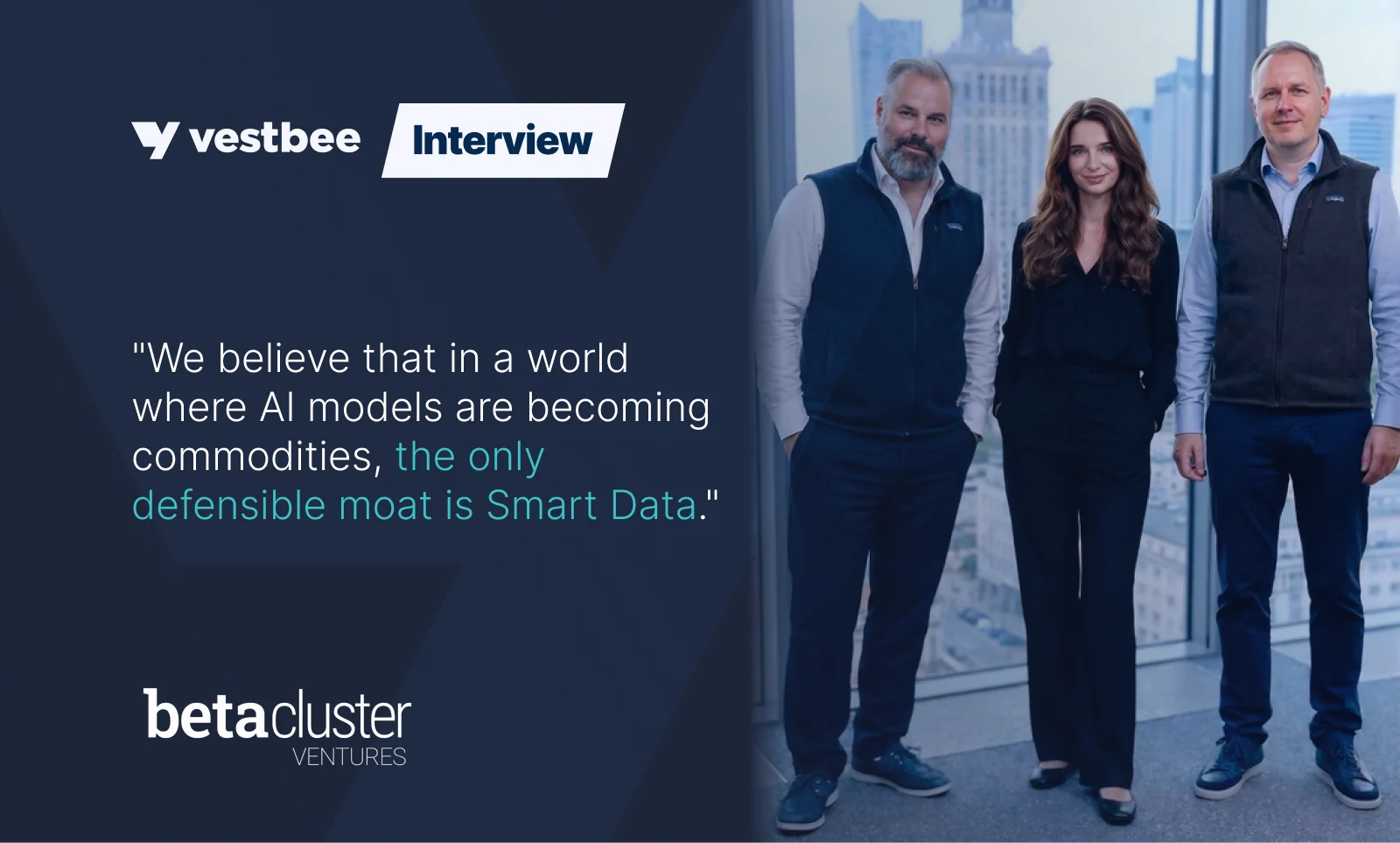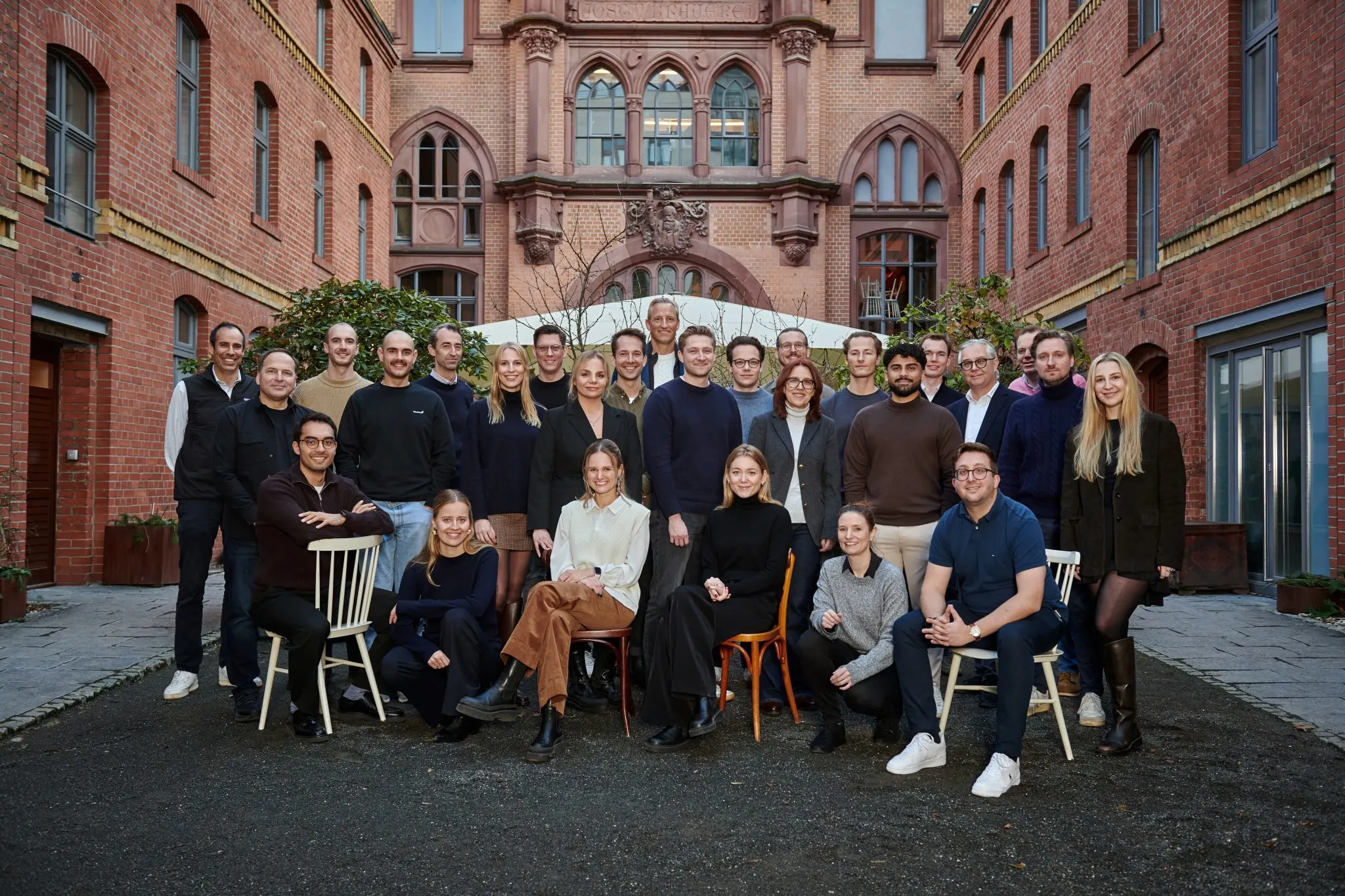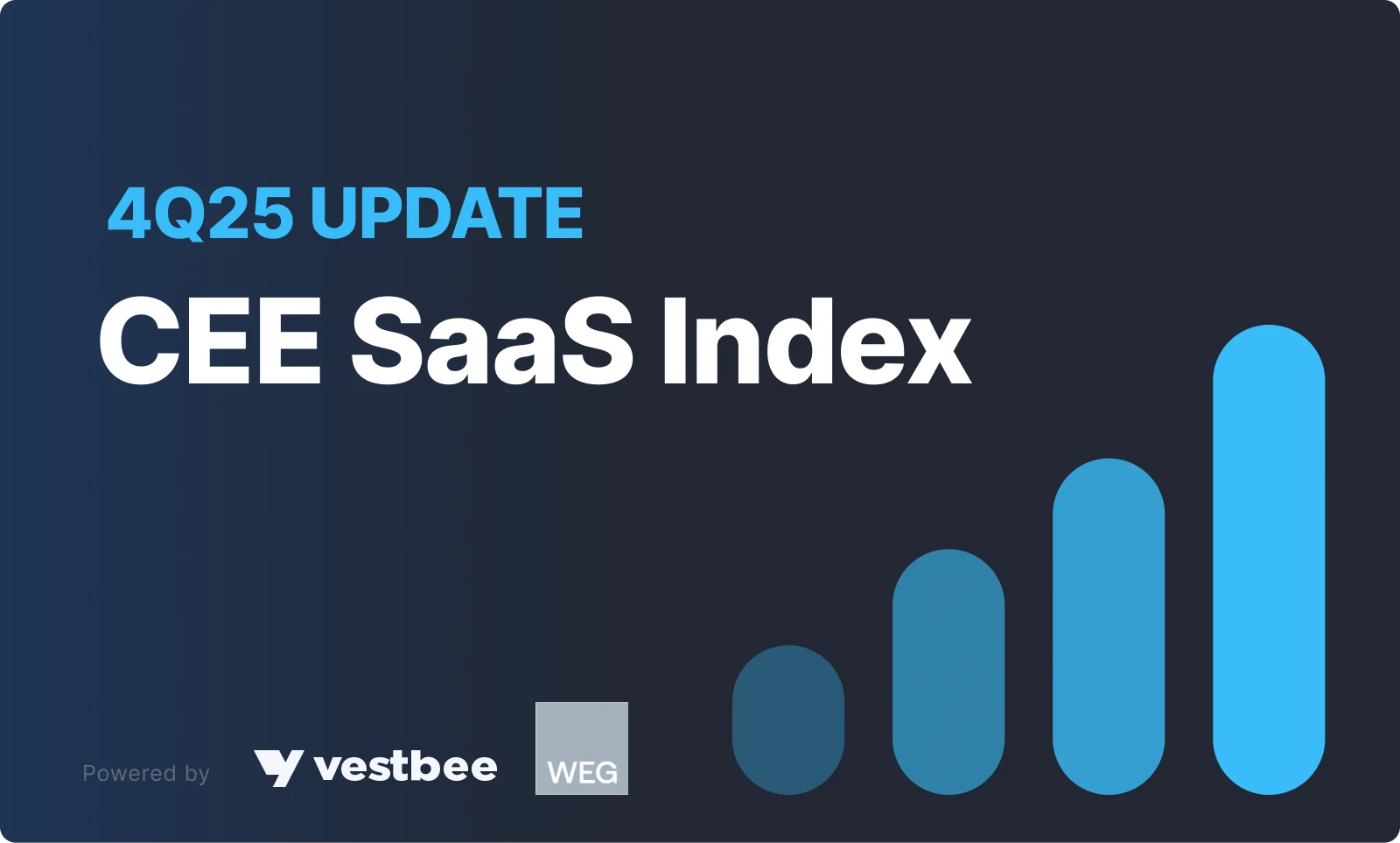Chris Wade, co-founder and Partner at Isomer Capital, a London-based LP investor with a diverse portfolio including over 80 European VCs such as Seedcamp and Hoxton Ventures, visited Warsaw in March to participate in CEE VC Summit.
During a fireside chat with Marcin Łączyński, Chief of Investments at Vestbee and GP at Next Road Ventures, he shared insights into managing a VC fund from the LP perspective, emphasizing the importance of a clear vision and explaining why excessive marketing and PR efforts are off-putting for LPs, as well as offered a book recommendation on the subject. Here, we publish the shortened version of their conversation.
Marcin Łączyński: Chris, your story is amazing. You have a Bachelor of Science in Chemistry and Physics, and your path to becoming a VC and LP wasn't straightforward. Could you tell us more about it?
Chris Wade: There was no plan. It was simply a matter of being fascinated by technology. I spent 15 years working with a big technology company in the US and then started building my own companies in Cambridge, UK. In 2001, I had to dismantle the first one due to the 2001 stock market crash, which affected everyone in the technology sector. My goal back then was to preserve cash, so I successfully exited that company. Afterward, I spent a bit of my life not quite sure what I wanted to do next, and soon began angel investing.
I became interested in the probability idea of investing: the idea that the more things you invest in, the higher the probability that one or two will do well. Think that's called venture capital. So, I started understanding venture capital and went to work for a firm called Octopus Ventures.
Then I had the great fortune of meeting my co-founder, a man named Joe Schorge. We dreamed of creating a fund for the whole of Europe to build unicorn companies and support emerging VCs across the continent. When we started, there were 20 unicorns in the whole of Europe. Today, there are nearly 400.
Now, that's not because of us. At all. It's because we got one trend right, and many of you have been supportive of that here. We love Central Europe; we think it's a beautiful part of Europe, and we'll continue to invest here.
You mentioned that you had a vision. How important is this vision from your perspective as an LP?
Being a VC is really tough. Think about it: you might have to go without a salary for a couple of years to raise this money. You have to invest to create the structures and all the staff. Then, you have to go and talk to anyone who will talk to you about raising capital, dealing with some awful people who won’t give a proper answer. And then you have to make some bets, and some of those bets have got to work.
Next, you face another challenge: which bets should you support and follow on? The clock’s running out, and you need to raise your second fund to show performance. This is a really hard business, so you have to have a vision.
This is about more than making money. It’s about creating something with intangible value. It might be 30 or 40 companies in a particular sector, or just being the best VC in a particular region and getting the best deals. It could be focused on sustainability, deeptech, or climate change, just to mention a few topical areas right now. But you do need a vision.
The reason you need a vision is to stay motivated and remember why you’re doing this because there will be many dark days. Another reason is that when you walk into an LP meeting, the first three or four words you say need to answer the LP's question: why does the world need another VC?
If you have a very clear vision of what you’re trying to do, why it’s different, and why it’s important, then you get the LP’s attention. That’s crucial.
Let’s imagine that we, as Partners, have caught your attention. How important are we as a team to you? As VCs, we invest in people. VC games are about investing in people. What about the LP perspective?
It's completely the same.
So what do we think about teams? Over the last six months or so, we've had, perhaps not surprisingly, lots of meetings with people from the AI funds. The first thing we're asking ourselves about this team is whether there is any AI expertise, experience, and background in that firm. Often, there is not.
The next question we ask ourselves is: will this partnership survive? Will this partnership work? Has the team worked together before? Do they have different skills? Do they have different perspectives? Is that a harmonious kind of relationship? For an emerging manager, that's really hard to figure out. But somehow we do have to figure it out. We get it wrong occasionally.
You need a specific process to understand the nuances of team dynamics, especially when investing outside your base region. How do you collect your intel in such cases?
I'm often asked, why do you only invest in Europe? And the reason is that we know a lot of people in Europe. So when we meet a manager, we say, yeah, actually, that's pretty interesting. And you kind of then figure out who they know and what they know, and you start just gently saying, hey, I met so-and-so, what do you think?
So we're using that big Isomer network that is all of us with our careers in building companies, being in venture, doing seed investments.
Moving from vision to product, because as a fund, we need a solid product. What is Isomer seeking in investment strategies: innovative models or well-tested, safe options?
We have backed managers that have nothing. We don't do it very often, but we do it, particularly when we see a sector expertise that is really valuable, and we help them become a VC.
Our strongest advice on this subject is to get to a first close. It doesn't matter how big. Five million, ten million, and go and do some deals that are on thesis because that is the transition In founder speak, in company speak, it is the difference between going from a presentation to a product. We are investing in these kinds of companies. This is our belief. This is our expertise.
Now, frequently, particularly when we come to do a fund two, where it's too early to tell any kind of performance of fund one, we look at the product in the first fund to see how it is.
You're touching on marketing and PR. From your perspective, does it matter that the managers you back can create enough noise to attract founders?
Yes and no. Is the real answer.
Yes, it's good that we back managers that are well known, but we are not a FOMO investor. We have backed managers multiple times that have no website because they are just really good at what they do, and the ecosystem that builds their kind of companies knows they exist. What brand is about is your understanding your proposition and being able to communicate it.
Brand is not about spending money on marketing and press releases and continually spending time on social media. Brand is about knowing how to communicate who you are and what you're doing, both from a startup perspective and an LP perspective. That's what brand is about.
If we see funds spending a lot of time on general marketing, it slightly puts us off. It means you're not spending enough time with your portfolio or building it.
Okay, we have the product, but then the product also has to be somehow innovative. How significant is innovation to you?
It's somewhat important. I think we're slightly old-fashioned. We still believe in getting out there, meeting people, entrepreneurs, and LPs. It's still a really good approach.
We're not excited by or dazzled by sort of data-driven VC models. I just think it's applicable. In fact, I was talking to one of our managers who's here this morning. They've got a ChatGPT trained to do sourcing. And it's great at creating lots of data, but you cannot train it to make intuitive decisions. So how useful that is unclear to me.
By the way, an extremely good book to read about venture capital is Sebastian Mallaby's The Power Law. I'd recommend it to anybody who's interested in venture capital. It basically goes back to the beginning of venture capital.
Now, what I'd like to innovate is this notion that VCs should be thinking about their fund as a business of having two halves: investing and then divesting. And my contention is most people are very good at the first half and not very good at the second half.
We have a few managers in our portfolio, who just are religiously focused on DPI, Distributions to Paid-In. They do so not by trying to convince the company to sell at some premature time, which is always the debate: do you sell early or do you sell now, but actually by selling a bit.
And a little bit like a football game, you just want to keep scoring goals to win the game, sending a little and often back to LPs makes LPs much more likely to want to invest in your follow-on fund. Even if actually, the total DPI number may not be very big. Because what it's communicating is you've understood the business model of venture capital.







